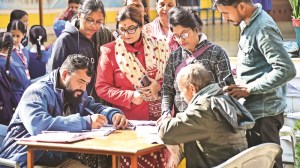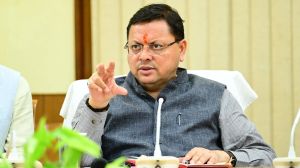India to oppose pact by US,Europe on counterfeiting
The commerce ministry is likely to voice its its opposition to the US and Europe Unions Anti-Counterfeiting Trade Agreement,
The commerce ministry is likely to voice its its opposition to the US and Europe Unions EU Anti-Counterfeiting Trade Agreement ACTA,arguing its passage would create non-tariff barriers for the trade of Indian intellectual properties IP. According to the government and intellectual property experts,ACTA would protect the rights of developed world8217;s IP owners and thwart years of the multilateral negotiations which led to intellectual property rights IPR agreements for pharmaceuticals and internet service providers.
Led by the US and EU,ACTA negotiations have been on-going in clandestine fashion since 2008 when the first round of talks commenced in Geneva. Another seven rounds have occurred with the act picking up steam among developed countries including Japan,Canada,Australia,Singapore,Switzerland,South Korea and New Zealand along with Morocco and Mexico. As India,how do you react; you do it bilaterally,multilaterally and by retaliating, said a commerce ministry official. They are taking advantage of developed countries in Africa and Latin America where seekers for things like pharmaceutical drugs cannot be choosers.
Indias primary concerns are based on ACTAs provisions for border measures allowing the seizure of medicines simply on grounds of suspicion and civil enforcement creating a wider scope for injunctions and damages on all IPRs,not only on copyright and trademark violations. If this club of ten countries enacts and imposes ACTA on the rest of the world,they are likely to do so after fixing the provisions of TRIPS trade-related aspects of intellectual property rights and the Doha declaration which include clauses protecting developing nations. If they completely by-pass the flexibilities negotiated into TRIPS with these extraordinary measures proposed in ACTA,then the question arises: why did we negotiate all these years? says Raghu Cidambi,Advisor,Indian Pharmaceutical Alliance. All the countries in the world spent a lot of time negotiating and thought they had won a hard-earned victory; basic thing from our countrys perspective is that the multilateral trade forum is being tarnished.
Experts also contend that ACTAs drafters have taken liberties with jargon by lumping all generic medicines into the same basket as spurious drugs and dubbed them as counterfeit. Its the developed worlds pharmaceutical industry and IP maximalists who are involved in formulating the text primarily for IP rights enforcement, explained Mira Shiva,coordinator for the Initiative for Health,Equity and Society.
Although NGOs have caught the governments eye on this issue,India lacks a venue for raising their objection as Indian officials have not been asked to participate in the dialogue. In the meantime,the clock is ticking on opposing nations to step in as US President Barack Obama has sought completion of ACTA by the years end.
- 01
- 02
- 03
- 04
- 05































